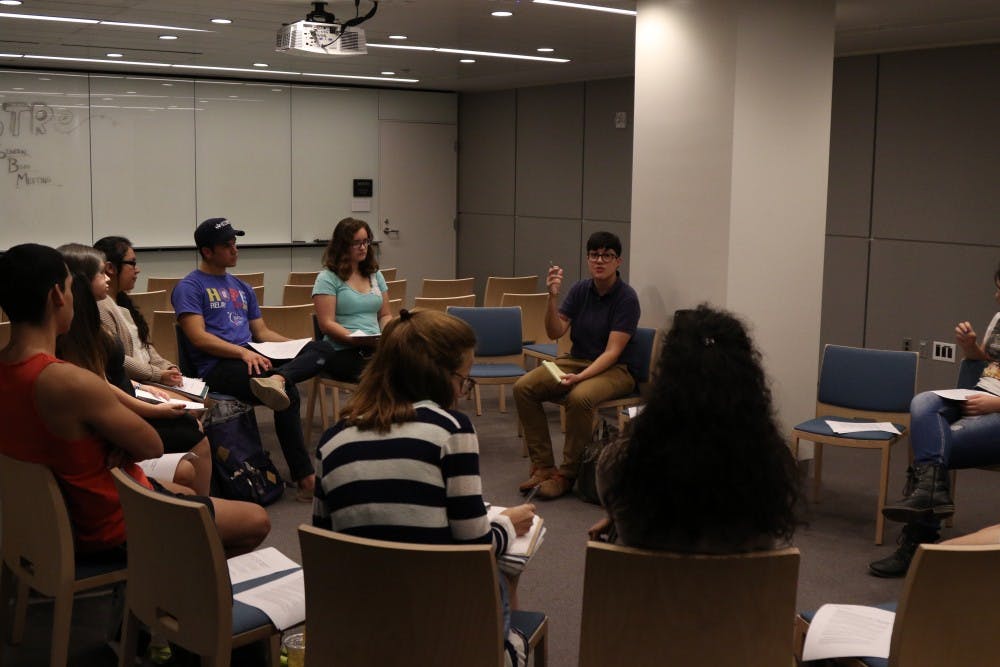Police brutality towards the Latinx community, a relatively unaddressed issue, was the focus of a Mi Gente event Tuesday evening.
Marisol Lebrón—the 2015-2017 postdoctoral associate in Latinx studies in the Global South at Duke and assistant professor in the department of American studies at Dickinson College—led a discussion among a group of about 10 students in a West Union meeting room. The organizer of the event was sophomore Jair Oballe, Mi Gente’s political chair.
“What is the relationship between Latinos and Black Lives Matter?” Lebrón asked.
The discussion was largely based on an article in The New York Times concerning the lack of attention paid to police shootings affecting the Latinx community. When one group is receiving more attention, another is receiving less attention, said junior Elizabeth Barahona, president of Mi Gente.
“You don’t want to take away from someone else’s remorse and the needs in a specific community,” Barahona said. “You want to point to your own, but it’s like, you don’t want to be egoistic about it, you don’t want to be selfish.”
According to PBS Newshour in July, 16 percent of the victims of police-involved killings this year were of members of the Latinx community.
The idea of competing resources shows how it is necessary for different communities to work together, several students noted.
“If you are fighting for the most oppressed people in society, you are inevitably fighting for everyone in society,” Lebrón said. “You’re inevitably dealing with those kind of things that will also effect and change your community.”
The group also brought up the possibility of the Latinx community getting involved with the Black Lives Matter movement, as well as discussing related immigration concerns.
“There is a perception in terms of the sphere of politics in this country that the only relevant, pressing issue facing Latinos in this country is immigration,” Lebrón said. “It makes assumptions about Latino claims to citizenship in this country by only seeing the only relevant issue to them as one of immigration.”
Focusing on immigration as the main issue facing Latinx members hides the fact that police brutality affects them as well, Obelle said.
“On one hand, it’s very important for Latinos and the black community to come together because we both have this issue of police brutality,” he said. “But on the other hand, perhaps why they’re not getting on the other side, is that black people don’t see themselves as having issues with immigration.”
The Latinx community experiences police brutality at a different level than the African American community does, Lebrón said. She noted that the “urgency is really different” for the black community, but that police brutality toward the Latinx community is significant as well.
Toward the end, Barahona posed a question for the group to think over.
“What would happen if Latinos and blacks joined Black Lives Matter?” she asked.
Get The Chronicle straight to your inbox
Signup for our weekly newsletter. Cancel at any time.

